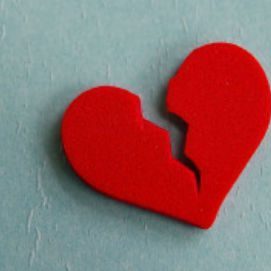
Dr Frankie Bashan is a renowned relationship coach and dating expert.
She is a licensed clinical psychologist with over a decade of experience working with couples and individuals and specialized training in the field of trauma. She possesses a unique combination of formal training, innate emotional intelligence, and communication skills that allow her to help couples struggling with relationship issues of all kinds.
Dear Dr Frankie,
Lesbians are known to be extremely relationship-focused. I have yet to go on a first or second date with a woman where she does not mention her past relationships. It’s a big generalization, but with heterosexual dating, people don’t talk about their exes for quite some time, and definitely not as extensively as lesbians do. At what point should you mention exes, and to what degree? —Annoyed
Dear Annoyed,
I think people often find it tempting to discuss one’s relationship history because it’s something most people can relate to. Many of us have had our fair share of relationship follies, some more comical than others, and it can be a way to share similar experiences. My suggestion would be to hold off on trading relationship stories until you’ve been on at least a couple of dates, but even then keep it light.
I strongly discourage sharing relationship traumas or domestic violence incidents early on. I’ve heard women tell me about their “full-disclosure” policy where they lay out the gory details of their relationships and lives. They are operating under the false belief that if it’s meant to be, the person will embrace them and their baggage. This is just wrong. There is a time and a way to appropriately disclose this type of information, and first, second, and third dates are simply not the place.
Leaving a relationship on good terms is a sign of maturity and being emotionally healthy. If you have a string of breakups that ended badly and you’re not on good terms with any of your ex’s, be thoughtful about how soon and how much you share. One may make interpret your rocky relationship history as a red flag.
Before you ask the person you’ve just started dating about her relationship status, it might be helpful to think about what you’re trying to learn. You probably want to get a sense of whether she’s had long-term, healthy, intimate relationships, whether she’s had positive experiences in her relationships and whether she and her ex maintained a friendship after the breakup. An alternative way to learn about the quality of her former relationships is to ask about her friends and family. You can get a sense of how she views interpersonal and intimate relationships by how she relates to her friends and family. For example, does she have a long-term, close-knit group of friends? Is she close with her family? What type of relationship does she have with her family? The way she describes and discusses these types of relationships will often give you a window into the quality of her romantic relationships. Early on, it’s less intimidating and easier to discuss friends and family rather than former romantic partners. Learning about platonic relationships will give you a glimpse into their emotional availability and capacity for intimacy.
Dear Dr Frankie,
How often should you see each other when you are first dating? Also, I am a HUGE text messager. How often and how long should your text communications be? —iPhone obsessed
Dear Obsessed,
Many of my clients in long-term relationships love reflecting on the early stage, or honeymoon period, of their relationship. This is generally a very exciting time in a relationship. When we first meet someone we really like, we often can’t stop thinking about them and want to be with them every waking moment. As tempting as it is to spend all your time together I absolutely discourage this. I especially discourage this if you could see yourself dating her long term. Fight the urge to smother each other and take things slow. When I say slow I mean seeing each other once or at the most twice a week for the first couple of months. This is a guideline that many happy, long-term couples have followed; but that is exactly what it is- a guideline. You don’t need to rigidly follow this, but it’s a general rule to avoid overexposure and relationship burnout.
I also advise against spending night after night together. Keep in mind the honeymoon period is the sweetest, most exciting time of a relationship, why rush through it? Try and savour every moment and extend the excitement as long as you can. Crowding each other also gives you more opportunities to get on each other’s nerves. Develop a healthy foundation that is conducive to effective communication and successful navigation of typical relationship stressors. You want to learn about how your girlfriend communicates, what triggers or upsets her, and how she works through difficult emotional situations at a comfortable, natural pace. She too will need to learn about you and how you handle more difficult situations. If you jump into spending too much time together too quickly, you put too much pressure on your fledgling relationship. Without the proper foundation to handle these challenges, little road bumps can become catastrophic sinkholes.
And thank you for your text message question; obsessive text messaging is a personal pet peeve of mine. When you’re spending time together your phone should be in your pocket, or better yet in the other room, on silent mode, out of view. Do not place your cell phone on the dinner table as if it were a dinner guest, and do not text obsessively while spending quality time with your girl. Texting is a means of communication that should be used only to convey non-emotional messages. If oral communication results in occasional miscommunication, imagine how likely miscommunication occurs via text messages. Texting is convenient and quick- I get it. But avoid texting to express disappointment, sadness or anger.
Ideally, you will save that communication for face-to-face moments, or at least the phone. I can’t tell you how frustrating it is to see my clients continuing to fight over misunderstandings that could have been avoided if they communicated verbally rather than through a simplified text message. When you sense the text communication is getting heavy or tense, stop instantly and pick up the phone. Save yourself and your relationship the unnecessary headache. I guarantee you’ll have a happier relationship if you avoid using text messaging as a way to communicate anything other than simple thoughts free of stress and negative emotion.
Hi Dr Frankie,
I met this lovely lady and we went out on two dates. On the second date, I told her that I am moving out of the country. After we parted that day I gave her a peck on the lips. She didn’t react and just smiled. The third time we met she told me that she had two problems. One was that I was leaving the country, and the second that I might not come back. She then suggested she might come to Canada, where I was moving.
Later she suggested we be friends. I told her I liked her and that I understood it wasn’t fair to her. At the end of it all when we hugged and parted, I felt something along the lines of ‘more than a friendship sign’ because her hug lingered. I would have wanted that to go on, but thought I had already made a fool out of myself when I gave her a peck on the cheek. Does this mean there is still a possibility of a relationship? Please advise. Thank you. —Globetrotter
Dear Globetrotter,
It sounds like the two of you do have a connection, but the only way to know if a relationship is possible is to strike up a dialogue and express your feelings. You will need to be open to putting yourself in a vulnerable situation because you’re jumping into the unknown. You will be expressing your feelings for her without knowing if her feelings are reciprocal. But think about it like this; what do you really have to lose? It takes courage to be honest about your feelings but if you don’t take the risk you’ll never know what could have been. The worst-case scenario is that she doesn’t have romantic feelings for you.
It’s not the end of the world, and in fact, any healthy person will recognize and respect the courage it took for you to open up. She will also undoubtedly be flattered by your interest. You can walk away from the situation feeling proud that you took a bold step regardless of the outcome. Healthy risks are cosmically rewarding.





